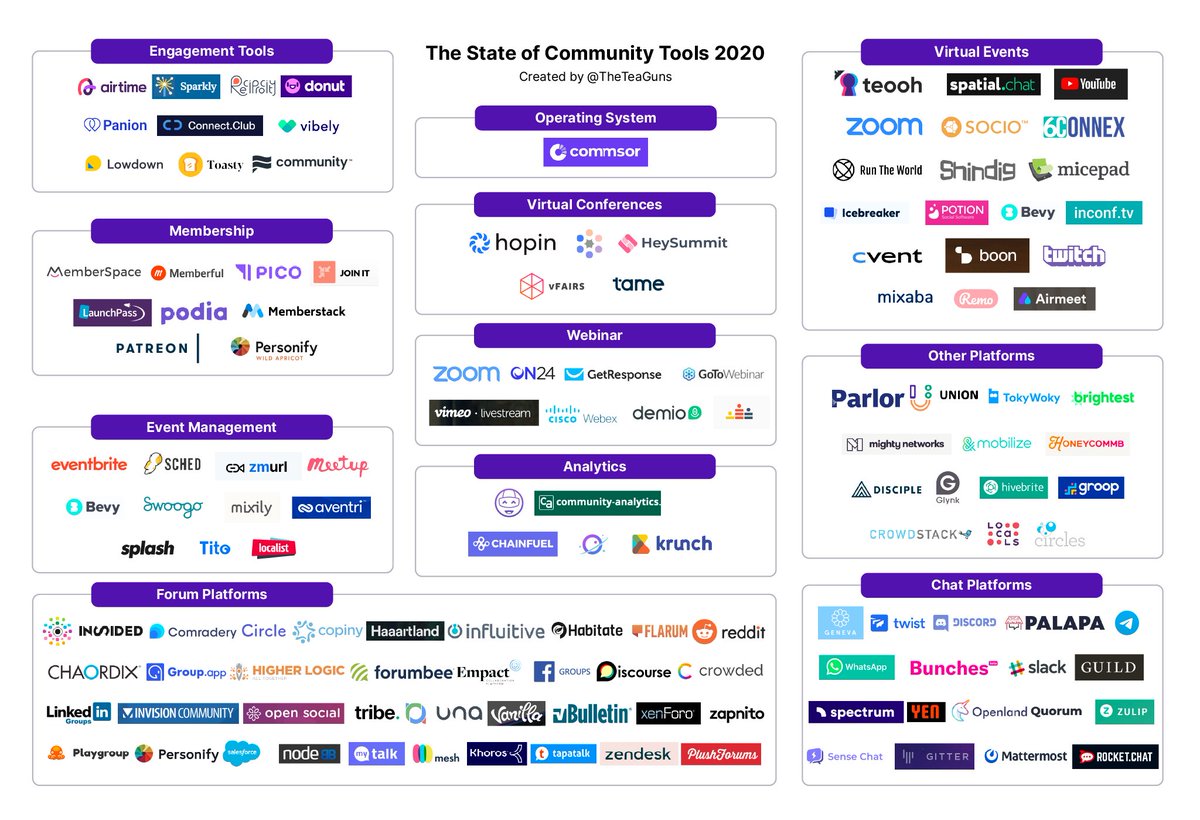There won't be a single de-facto set of tools for running an online community. That’s because community is incredibly broad.
commsor.com/post/mapping-t…

Communities online will get built in different ways too, leveraging different "community stacks."
There’s different types of engagement, frequency, and UGC being shared.
- Degree of P2P engagement
- Level of intentionality (is the community a standalone destination? or an extension of something else?)
- How members interact w/ each other
- What type of UGC is being generated
What is the best way to abstract different types of interaction so as to be able to serve a large enough market? What are the commonalities between different communities?
- Communities are setting up their own independent properties, separate from large social platforms:
- "Community-as-a-service", or how communities can monetize:


